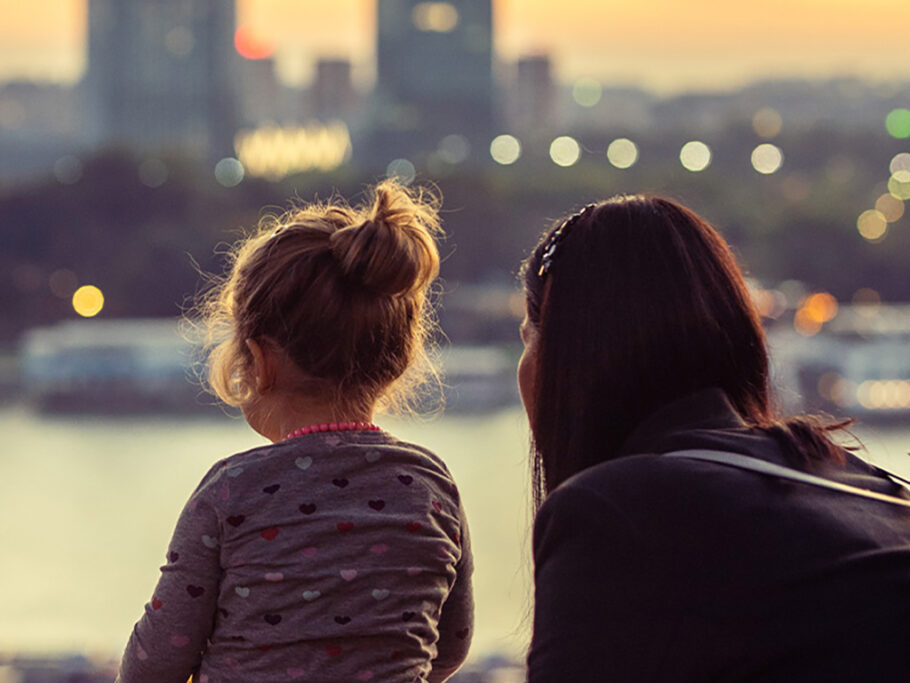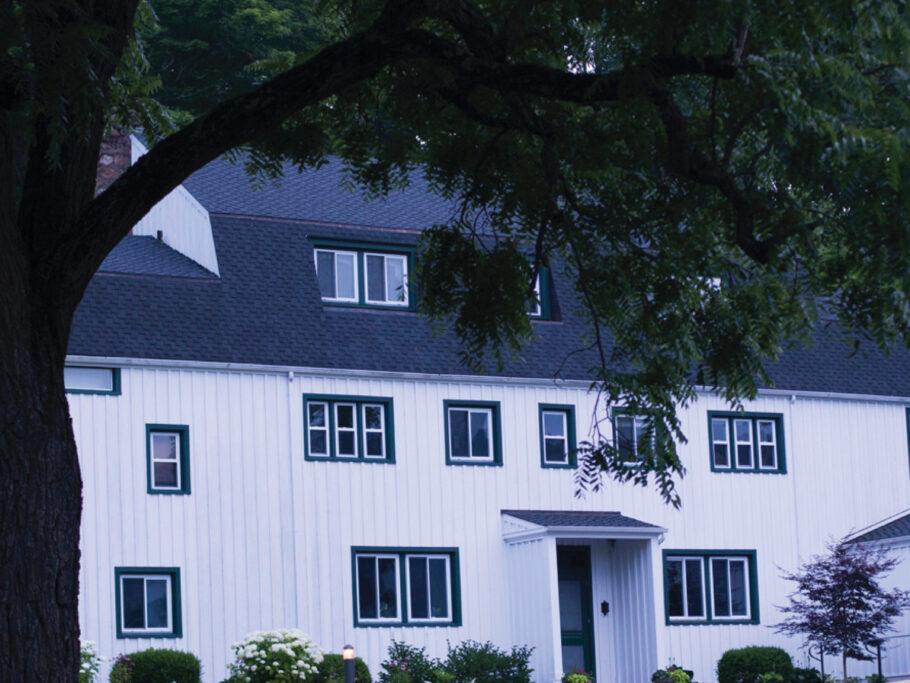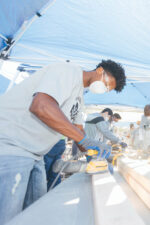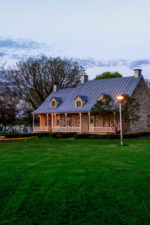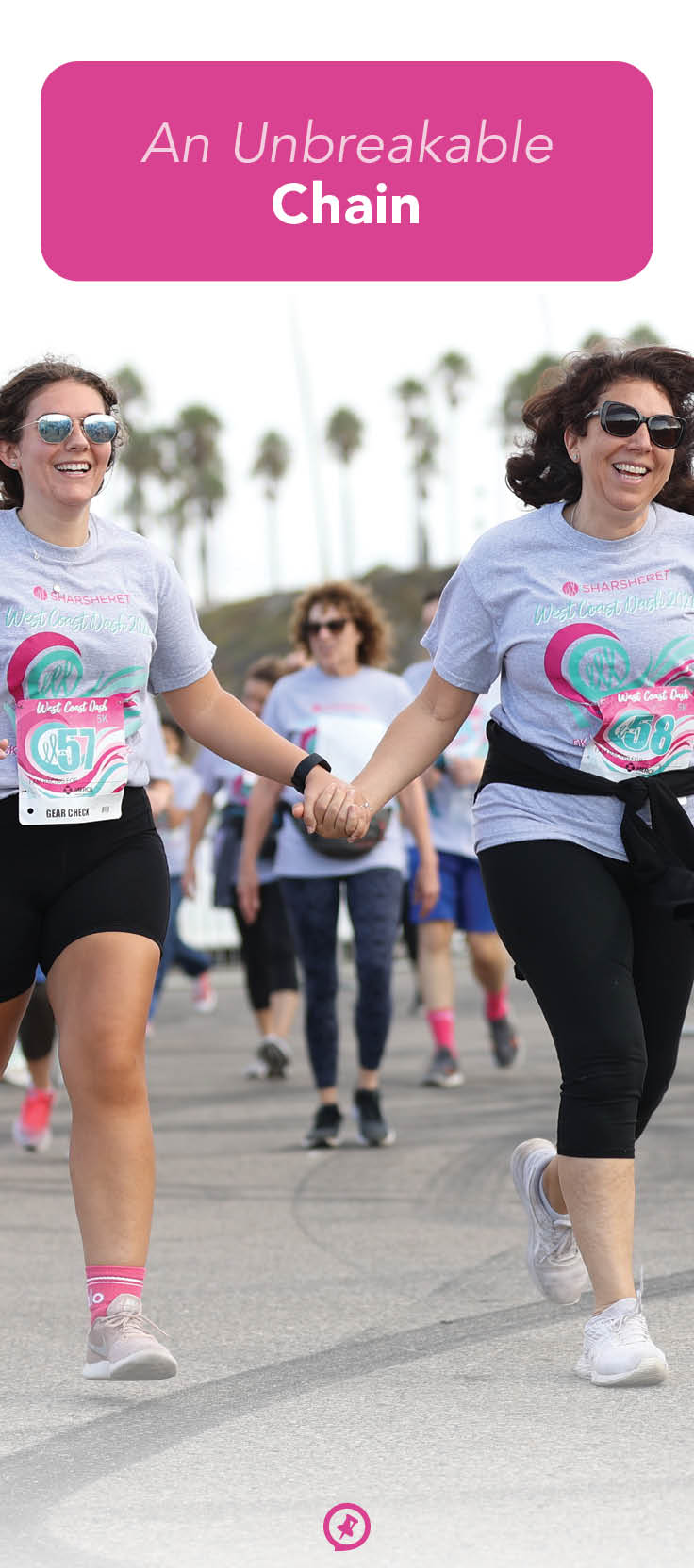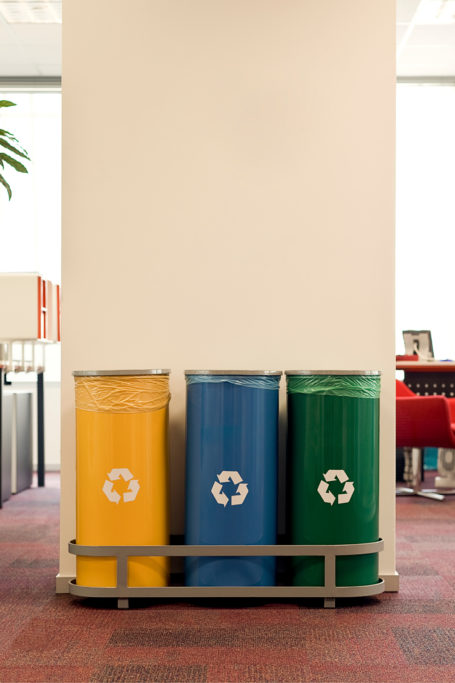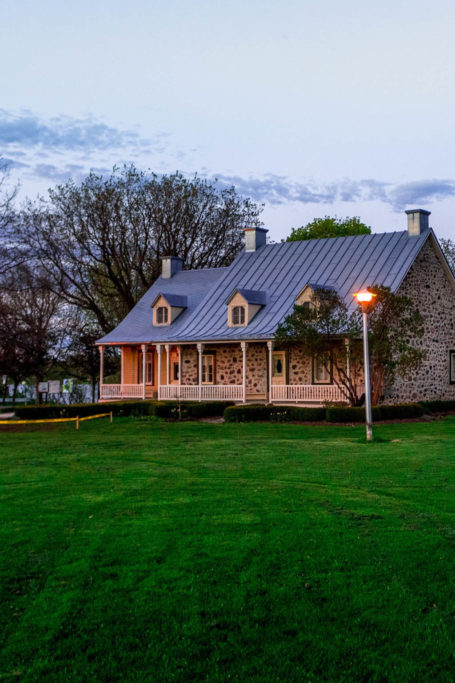An Unbreakable Chain
Interview wit Elana Silber
Photography Courtesy of Sharsheret
Elana Silber, CEO of the nonprofit Sharsheret (shar-SHEH-ret), explains the organization’s history and how it seeks to raise awareness of the risk of breast and ovarian cancers among young women, including for a particularly vulnerable group—women of Ashkenazi Jewish descent.
Why was Sharsheret founded?
Sharsheret was founded in 2001 by a young Jewish woman named Rochelle Shoretz, an otherwise healthy young mom who was diagnosed with breast cancer at twenty-eight. After her diagnosis, she consulted with aunts and grandmothers in her community, but they didn’t seem to understand her unique issues. Eventually she was introduced to Lauryn Weiser, another young mom diagnosed with the disease. Lauryn helped carry Rochelle through her diagnosis and treatment.
They realized they had an opportunity to help other young women with breast cancer, and in 2002, they set a goal to help at least five. At the end of that year, they had worked with roughly 1,000 women, at which point they knew there was a need that wasn’t being met.
They decided on the name Sharsheret because it’s Hebrew for “chain.” Sharsheret is based on a peer support network—the same way Lauryn was a peer supporter for Rochelle. They wanted to help connect women with similar diagnoses, backgrounds, ages, and concerns and match them one-to-one, all by phone and email.
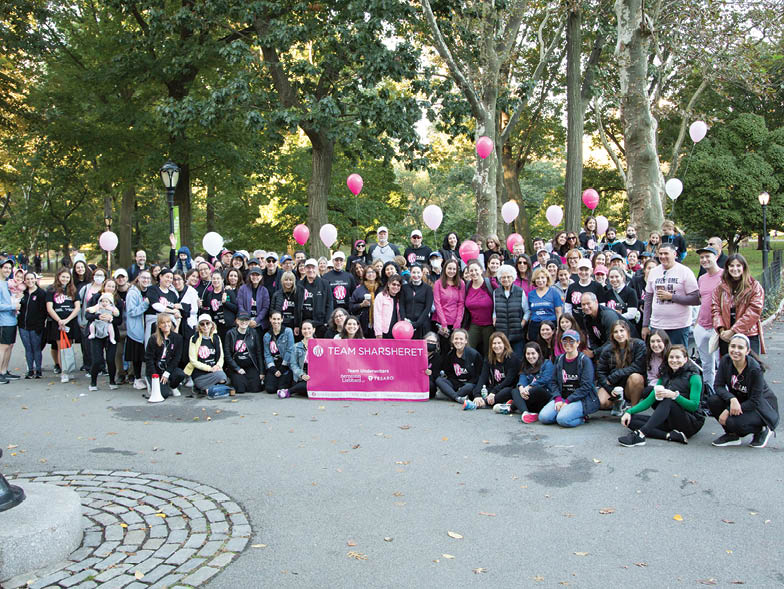
What were some of the unique concerns they wanted to address?
Rochelle and Lauryn found that women took great comfort in having a peer supporter, but they still struggled with cosmetic side effects like hair loss and skin changes. So they created a program that helps pay for high-quality wigs and cold caps. Then they had women asking for resources to help them care for their children while in treatment, so they created what we call a Busy Box filled with toys and educational materials. All of the programs at Sharsheret have been developed as a direct response to the needs of the women we serve.
How do Sharsheret’s programs support breast cancer awareness among people of all ages?
Our organization has three areas of focus. We educate the community through five hundred to six hundred annual events, provide financial assistance for low-income patients for nonmedical services that improve quality of life, and offer one-on-one support for women and families facing cancer treatment.
We also believe in educating early. Sharsheret offers programs starting at the high school level that center on what we call Pink Day; it’s a way to raise awareness in teenagers on the importance of healthy living and family history. In addition, a lot of diagnosed women have children in high school, so we launched another program in schools to help students interact with peers who have a parent with breast cancer. We also created a film called My Second Backpack, in which kids share their family’s experiences with breast cancer.
At the university level, Sharsheret is a national philanthropy for AEPi, the largest Jewish fraternity in the world. Every chapter is required to host a charity event for us, but we also continue our theme of education and teach these students about healthy living as they shift from adolescence into adulthood. Family history is hugely important with this group—a twenty-three-year-old student whose mother was diagnosed with breast cancer at thirty-three really needs to be working with a doctor to start screening herself early.
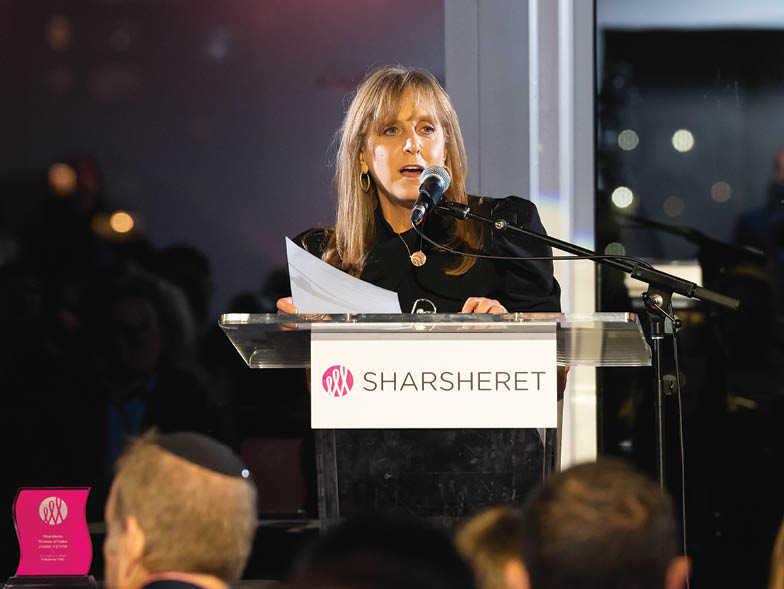
You mentioned that Sharsheret holds hundreds of events annually. Tell us about some of them:
In addition to our peer-to-peer support programs and youth education, our five offices in New York, New Jersey, Los Angeles, Chicago, and Florida hold a large number of annual fundraisers. In LA, for example, we’ve done a 5K dash, and in New Jersey and Long Island we’ve held a BBQ in the summer.
Each year, typically starting in October, we also do what we call Teal and Pink Shabbat. We work with people at the community level to help them organize their own events at a synagogue or community kitchen, and we provide a calendar on our website so that people might find an event near them. This event is for education but also serves as a platform for people in the community to share their experiences. We even provide a recipe for making your own pink challah bread.
Also in October, we hold a summit called Pink, Teal, and You, which incorporates information from a lot of our other programs. Over the course of a week, we work to spread awareness through national webinars and partner with about one hundred different organizations to get the word out.
What role do genetics and genetic testing play in your education initiatives?
We have twelve social workers and a genetic counselor on-site who work with people across the country and from all demographics to make sure they have the information they need. Our goal is to empower women and families with this knowledge to help prevent or catch cancer early.
The average woman might not need a mammogram or ultrasound until she’s forty, but everything changes depending on family history. Many people think this is only important on the mother’s side, but that’s not the case. When there’s a genetic mutation—the most well-known being the BRCA gene mutation—it can come from the mother or the father. Also, one in forty Jewish women of Ashkenazi descent carries the BRCA mutation versus one in five hundred in the general population. Jewish families are at a much higher risk for hereditary breast or ovarian cancer. This is important for men, too, because this gene mutation poses an increased risk of prostate, pancreatic, and male breast cancers.
How has Sharsheret’s impact in the breast cancer awareness community grown in the past twenty-plus years?
Today, we have forty full-time staff members and a budget of $5.1 million. We serve on the Advisory Committee on Breast Cancer in Young Women, and a few years ago I was the committee chair. We also have an ongoing partnership with the CDC and NIH to develop programs for young breast cancer survivors.
In the last twenty-plus years, we’ve been able to take Sharsheret from a support group to a national network, and we are very proud of that. But even though we’ve grown into a larger organization, when you call us, you still feel like you’re our number one focus.
For more info, visit sharsheret.org







